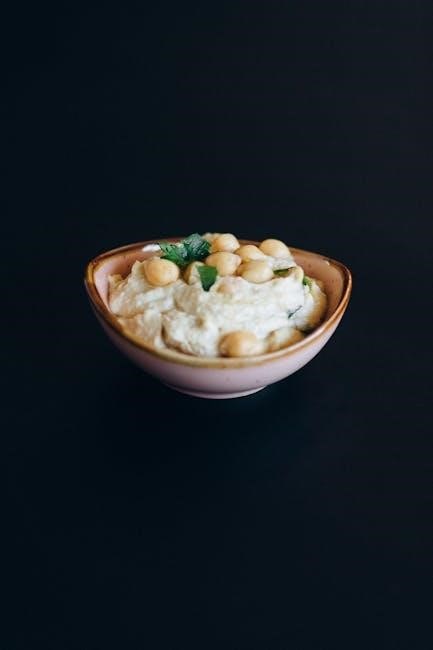Pfaff Sewing Machine Repair Manual PDF: A Comprehensive Guide
Navigating the world of Pfaff sewing machine repair often begins with accessing a detailed PDF manual; these resources offer invaluable service information.
Download options are readily available for models like the Pfaff Select 1520/1530/1540, providing instructions for maintenance and troubleshooting.
PDF formats allow for easy access to sewing machine schematics, parts lists, and repair guides, benefiting both hobbyists and electronics experts.
Superior Sewing Machine & Supply LLC offers technical data and instructions, while various online libraries host manuals for diverse Pfaff models.
Embarking on Pfaff sewing machine repair requires a foundational understanding of these precision instruments. Accessing a comprehensive Pfaff sewing machine repair manual PDF is the crucial first step, providing detailed insights into the machine’s intricate mechanisms. These manuals aren’t merely user guides; they are technical documents designed for those seeking to diagnose and rectify malfunctions.
Pfaff machines, renowned for their quality and innovative features like the IDT system, demand specialized knowledge. A service manual, often available as a PDF download, unlocks this knowledge, offering schematics, exploded views, and step-by-step repair procedures. Understanding the specific model – whether a 1245, 1520, or Hobby 1122 – is paramount, as each has unique characteristics and potential issues.
Successfully tackling repairs necessitates familiarity with essential tools and safety precautions. The PDF format allows for convenient access to this vital information, empowering both seasoned technicians and enthusiastic hobbyists to restore their Pfaff machines to optimal working condition.
Why Use a Repair Manual?
Employing a Pfaff sewing machine repair manual PDF transcends simple troubleshooting; it’s about informed restoration. These manuals provide the technical depth absent in standard user guides, detailing intricate component interactions and precise adjustment procedures. Attempting repairs without one risks exacerbating problems or causing further damage to your machine.
PDF formats offer unparalleled convenience – instant access, searchable text, and zoom functionality for detailed examination of schematics. They are invaluable for identifying worn parts, understanding complex mechanical failures, and performing accurate lubrication. A service manual empowers you to move beyond superficial fixes, addressing root causes effectively.
Furthermore, these manuals are essential for safety. They outline proper disassembly and reassembly procedures, minimizing the risk of injury. Whether you’re a professional or a dedicated home user, a Pfaff repair manual PDF is an indispensable tool for maintaining your machine’s longevity and performance.
Locating Official Pfaff Repair Manuals
Finding authentic Pfaff sewing machine repair manuals in PDF format requires strategic searching. While Pfaff doesn’t always directly offer free downloads, numerous online resources compile and distribute these valuable documents. Begin by exploring dedicated sewing machine forums and communities, where members often share links to verified PDF files.
Websites specializing in service manuals, like those offering resources for Brother and Singer machines, frequently include Pfaff models in their catalogs. Superior Sewing Machine & Supply LLC is a potential source for specific model instructions. Be cautious of unofficial sites; prioritize those with clear file origins and positive user feedback.
Remember to specify your exact Pfaff model number when searching – for example, “Pfaff 1245 service manual PDF” – to narrow results and ensure compatibility. Thorough research and careful selection are key to obtaining a reliable and accurate repair guide.
Understanding Pfaff Model Numbers
Decoding Pfaff model numbers is crucial when seeking the correct repair manual PDF. These numbers aren’t arbitrary; they reveal key information about the machine’s features and capabilities; For instance, models like the Pfaff 1245 and 1246 share similarities, but require distinct service documentation.
The Pfaff Select 1520, 1530, and 1540 series, while closely related, also benefit from model-specific manuals. Knowing the precise number ensures you download the PDF with accurate diagrams and instructions for your machine’s internal components.
Always double-check the number located on your machine’s identification plate before downloading any repair information. Incorrect manuals can lead to misdiagnosis and potentially damage your sewing machine. Precise identification is paramount for successful repairs.

Common Pfaff Sewing Machine Problems
Repair manuals often address frequent issues like motor malfunctions, needle and threading errors, tension adjustments, and bobbin winding complications.
PDF guides provide troubleshooting steps for these common Pfaff machine problems, aiding in efficient repairs.
Motor Issues and Troubleshooting
Pfaff sewing machine repair manuals dedicate significant sections to diagnosing and resolving motor-related problems, a frequent source of operational difficulties.
PDF guides detail procedures for checking the motor brushes for wear, inspecting the wiring for damage, and testing the motor windings for continuity.
Troubleshooting often involves verifying the foot pedal functionality and ensuring proper electrical connections throughout the machine.
Service manuals provide schematics to trace wiring issues and identify potential short circuits or open circuits affecting motor operation.
Downloadable resources emphasize safety precautions when working with electrical components, advising disconnection from the power source before any inspection or repair.
Furthermore, these manuals often include instructions for lubricating the motor bearings to reduce friction and ensure smooth running, extending the motor’s lifespan.
Detailed diagrams illustrate the motor assembly, facilitating parts replacement when necessary, and ensuring correct reassembly after maintenance.
Needle and Threading Problems
Pfaff sewing machine repair manuals extensively cover common issues related to the needle and threading mechanisms, crucial for consistent stitch formation.
PDF guides detail proper needle insertion techniques, emphasizing the correct needle type and size for various fabrics, preventing breakage and skipped stitches.
Troubleshooting sections address threading errors, offering step-by-step illustrations for correctly guiding the thread through all tension discs and guides.
Service manuals explain how to inspect and clean the needle plate and bobbin area, removing lint and debris that can cause threading obstructions.
Downloadable resources highlight the importance of using high-quality thread and regularly replacing the needle to maintain optimal sewing performance;
These manuals also provide guidance on adjusting the needle clamp screw and ensuring the needle is securely fastened, preventing wobble and misalignment.
Diagrams illustrate the complete threading path, aiding in identifying and resolving complex threading challenges, ensuring smooth operation.
Tension Adjustment Difficulties
Pfaff sewing machine repair manuals dedicate significant sections to diagnosing and resolving tension adjustment problems, a frequent source of sewing frustration.
PDF guides explain the interplay between upper and lower thread tension, detailing how imbalances lead to looping, puckering, or weak seams.
Service manuals provide precise instructions for adjusting both tension dials, emphasizing incremental changes and test sewing on scrap fabric.
Downloadable resources illustrate the correct tension settings for different fabric weights and thread types, offering a starting point for adjustments.
Troubleshooting charts help identify the cause of tension issues – whether it’s incorrect threading, a dirty tension disc, or a worn tension spring.
These manuals detail how to inspect and clean the tension discs, removing lint and thread fragments that impede smooth thread flow.
Diagrams showcase the tension assembly, aiding in understanding its components and proper functionality, ensuring balanced stitch quality.
Bobbin Winding and Case Issues

Pfaff sewing machine repair manuals extensively cover bobbin winding and related issues, crucial for consistent stitch formation. PDF guides detail the correct bobbin winding technique, emphasizing even distribution and proper thread tension.

Service manuals illustrate the bobbin winder mechanism, explaining how to adjust winding speed and thread guide positions for optimal results.
Downloadable resources address common problems like uneven winding, thread breakage during winding, or a bobbin that won’t fill completely.
Troubleshooting sections focus on inspecting the bobbin winder drive belt and tension disc for wear or damage, offering replacement guidance.
Manuals explain proper bobbin case insertion and removal, highlighting the importance of correct alignment and secure latching.
Diagrams showcase the bobbin case assembly, aiding in identifying and replacing worn components like the bobbin case tension spring.
These guides also address issues with skipped stitches often linked to bobbin case problems, ensuring smooth and reliable sewing performance.

Pfaff Specific Repair Techniques
Pfaff repair manuals, often in PDF format, detail unique techniques for systems like IDT, presser feet, and gearboxes, aiding expert maintenance.
IDT (Integrated Dual Feed) System Repair
Pfaff’s Integrated Dual Feed (IDT) system is a hallmark feature, and its repair is often detailed within comprehensive service manuals available as PDF downloads.
These manuals typically provide step-by-step instructions for diagnosing issues like uneven fabric feeding or complete IDT failure, often stemming from timing discrepancies or worn components.
Troubleshooting guides within the PDFs emphasize checking the IDT engagement lever, the synchronizing components, and the feed dogs themselves for damage or misalignment.
Repair often involves carefully adjusting the timing of the IDT mechanism, lubricating moving parts, and replacing worn bushings or gears, as illustrated in exploded diagrams.
PDF manuals for models like the Pfaff 1245/1246 specifically address IDT adjustments, offering detailed insights into the system’s intricate workings and proper synchronization.
Successfully restoring IDT functionality requires precision and adherence to the manufacturer’s instructions found within these valuable repair resources.
Presser Foot Mechanism Repair
PDF Pfaff sewing machine repair manuals dedicate significant sections to the presser foot mechanism, detailing its complex interplay of levers, springs, and linkages.
Troubleshooting guides within these manuals address common issues like insufficient presser foot pressure, erratic stitch formation, or difficulty raising/lowering the foot.
Repair procedures often involve inspecting the presser foot bar, the height adjustment screw, and the associated linkages for wear, damage, or misalignment, as shown in detailed diagrams.
PDF resources emphasize the importance of proper lubrication to ensure smooth operation and prevent binding, specifying appropriate lubricants for each component.
Manuals for models like the Pfaff 134 provide specific instructions for adjusting presser foot pressure to accommodate different fabric types and thicknesses.
Successful repair necessitates careful attention to detail and adherence to the manufacturer’s specifications outlined in the downloadable service documentation.
Gearbox and Drive Belt Maintenance
Pfaff sewing machine repair manuals in PDF format consistently highlight the gearbox and drive belt as critical components requiring regular maintenance for optimal performance.
These manuals detail procedures for inspecting the gearbox for wear, damage to gears, and proper lubrication, often including exploded views for easy identification of parts.
PDF guides emphasize the importance of using the correct type of oil or grease specified by Pfaff to ensure smooth operation and prevent premature wear within the gearbox.
Drive belt maintenance involves checking for cracks, fraying, or stretching, with repair manuals providing instructions for belt replacement and tension adjustment.
Service documentation for models like the 1245/1246 often includes torque specifications for gearbox fasteners and belt tensioning procedures.
Proper maintenance, guided by these PDF resources, extends the lifespan of these components and prevents costly mechanical failures.
Circuit Board and Electronic Component Repair
Pfaff sewing machine repair manuals, available as PDF downloads, address circuit board and electronic component repair with varying degrees of detail, depending on the model.
These manuals often include schematic diagrams for identifying components like capacitors, resistors, and integrated circuits, crucial for troubleshooting electronic issues.
PDF guides emphasize the need for caution when working with electronics, highlighting the importance of disconnecting power before any repair attempts are made.
Service documentation may provide voltage testing points and expected readings to diagnose faulty components, requiring a multimeter for accurate measurements.
Component replacement instructions are sometimes included, though advanced repairs often necessitate specialized electronic repair skills and equipment.
Accessing a detailed service manual in PDF format is essential for anyone attempting to diagnose or repair electronic faults within a Pfaff sewing machine.

Downloading and Using PDF Manuals
PDF Pfaff repair manuals are instantly downloadable from various online sources, offering convenient access to service information and troubleshooting guides.
These digital resources streamline the repair process, providing detailed instructions for sewing machine maintenance and component replacement.
Reliable Sources for PDF Downloads
Locating authentic Pfaff sewing machine repair manuals in PDF format requires utilizing trustworthy online resources. Several websites specialize in providing these documents, ensuring you receive accurate and comprehensive service information.
Superior Sewing Machine & Supply LLC is a notable source, often offering detailed instructions and technical data directly from manufacturers. Additionally, numerous online libraries and forums dedicated to sewing machine repair frequently host scanned copies of original manuals.
Instant downloads are available from platforms offering a wide range of PDF manuals for brands like Singer, Husqvarna Viking, and, of course, Pfaff. Always verify the source’s reputation and the manual’s completeness before relying on its instructions. Be cautious of websites offering suspiciously free or incomplete manuals, as these may contain errors or be outdated.
Remember to prioritize official sources whenever possible to guarantee the accuracy and reliability of the repair information.
Navigating a PDF Repair Manual
Successfully utilizing a Pfaff sewing machine repair manual in PDF format requires understanding its typical structure. Most manuals begin with safety precautions and a parts list, crucial for identifying components during disassembly.
Detailed diagrams and schematics are central, illustrating the machine’s internal mechanisms and wiring. Pay close attention to exploded views, which clearly show how parts fit together. Sections are usually organized by system – motor, needle, tension, and so on – allowing targeted troubleshooting.
Look for chapters dedicated to specific repair procedures, often including step-by-step instructions and torque specifications. Utilize the PDF’s search function to quickly locate information on particular issues. Familiarize yourself with the table of contents for efficient navigation.
Understanding these elements maximizes the manual’s value for effective Pfaff machine repair.
Essential Tools for Pfaff Repair
Successfully tackling Pfaff sewing machine repair demands a specific toolkit beyond basic screwdrivers. A quality set of precision screwdrivers, including various sizes and types (Phillips, flathead), is paramount. Needle-nose pliers are essential for manipulating small parts within the machine’s intricate mechanisms.
Specialized tools, like a bobbin case wrench and a seam ripper, are frequently needed for specific tasks. A multimeter is crucial for diagnosing electrical issues, while a small brush aids in cleaning debris. Lubricants, specifically sewing machine oil, are vital for smooth operation.
Consider investing in a magnifying glass or visor for detailed inspection. Having a parts tray keeps components organized during disassembly. Accessing a PDF repair manual will often highlight tool requirements for each procedure, ensuring preparedness.
Safety Precautions During Repair
Prioritizing safety is crucial when undertaking Pfaff sewing machine repair. Always disconnect the machine from the power source before commencing any work, preventing accidental activation. Be mindful of sharp components like needles and blades, utilizing protective gloves when handling them.
When dealing with electrical components, exercise extreme caution; a PDF repair manual can guide safe disassembly and inspection. Avoid forcing parts, as this can lead to breakage and potential injury. Ensure adequate lighting to clearly see all internal mechanisms.
Proper ventilation is important when using lubricants or cleaning solvents. Dispose of old parts and materials responsibly. Refer to the manual for specific warnings related to your Pfaff model, ensuring a secure and successful repair process.

Pfaff Model-Specific Manuals
Detailed PDF manuals exist for specific Pfaff models, including the 1245/1246, Select 1520/1530/1540, Hobby 1122, and the classic 134 sewing machines.
Pfaff 1245/1246 Repair Information
Accessing repair information for Pfaff 1245 and 1246 models frequently involves locating dedicated service manuals in PDF format. These comprehensive guides, often available online, detail the intricacies of these industrial sewing machines, offering invaluable assistance for both seasoned technicians and dedicated hobbyists.
Superior Sewing Machine & Supply LLC provides specific instructions for adjusting these machines, including crucial technical data related to needle settings and operational parameters. The PDF manuals typically cover a wide range of repair procedures, from basic maintenance like lubrication to more complex tasks such as motor troubleshooting and gearbox adjustments.
Downloadable resources often include exploded diagrams illustrating the assembly of various components, facilitating parts identification and replacement. Understanding the specific nuances of the 1245/1246 requires a detailed manual, ensuring accurate diagnosis and effective repair solutions. These PDF documents are essential for maintaining the longevity and performance of these robust machines.
Pfaff Select 1520/1530/1540 Service Manuals
Locating a Pfaff Select 1520, 1530, or 1540 service manual in PDF format is crucial for effective repair and maintenance. These manuals provide detailed schematics, troubleshooting guides, and parts lists specifically tailored to these popular sewing machine models.
Downloadable resources often encompass comprehensive service procedures, covering everything from basic cleaning and lubrication to complex electronic component repair. The PDF format allows for easy navigation and printing, making it convenient to reference during repairs.
These manuals are invaluable for diagnosing issues like motor problems, needle and threading difficulties, and tension adjustments. Accessing these resources empowers both professional technicians and home users to confidently address a wide range of repair needs, ensuring the continued functionality of their Pfaff Select machines. They are essential for long-term machine health.
Pfaff Hobby 1122 User and Repair Guides
Accessing a Pfaff Hobby 1122 user and repair guide in PDF format unlocks a wealth of information for both novice and experienced users. These guides are designed to help you become proficient with your machine, offering detailed instructions and troubleshooting assistance.
PDF versions provide convenient access to safety tips for home use, ensuring a secure sewing experience. Repair sections cover common issues, guiding you through the process of diagnosing and resolving problems with the machine’s mechanics and electronics.
These resources are invaluable for understanding the machine’s features, performing routine maintenance, and tackling more complex repairs. A well-maintained Pfaff Hobby 1122 will provide years of reliable service, and these guides are key to achieving that longevity. They are a must-have for any owner.
Pfaff 134 Sewing Machine Manuals
Locating a Pfaff 134 sewing machine manual in PDF format is crucial for both operation and repair. These manuals serve as comprehensive guides, offering detailed instructions for setup, maintenance, and troubleshooting specific to this model.
PDF access allows for easy printing and referencing of technical data, including needle adjustments and machine settings. The manuals often include diagrams and schematics, aiding in the identification of parts and understanding the machine’s internal workings.
Whether you’re a seasoned seamstress or new to sewing, a Pfaff 134 manual provides the knowledge needed to maximize your machine’s performance and address any issues that may arise. Proper maintenance, guided by the manual, ensures longevity and optimal stitching quality.

Advanced Repair and Maintenance
PDF manuals detail Pfaff lubrication procedures, complex failure troubleshooting, and worn part replacement; accessing these guides is vital for expert machine upkeep.
Lubrication Procedures for Pfaff Machines
Pfaff sewing machine PDF repair manuals emphasize the critical importance of proper lubrication for optimal performance and longevity. These manuals provide detailed diagrams illustrating specific lubrication points within each machine model, ensuring targeted application.
Typically, Pfaff machines require oiling of key components like the needle bar, presser foot mechanism, bobbin area, and gearbox. The manuals specify the type of oil recommended – often a specialized sewing machine oil – and the frequency of application.
Instructions often detail how to access these areas for lubrication, sometimes requiring partial disassembly. PDF guides highlight avoiding over-oiling, which can attract lint and cause issues. Regular lubrication, as outlined in the manual, prevents friction, reduces wear, and maintains smooth operation.
Following the manual’s guidance ensures the machine remains in peak condition, minimizing the need for more extensive repairs.
Troubleshooting Complex Mechanical Failures
Pfaff sewing machine PDF repair manuals are invaluable when facing intricate mechanical issues. These manuals often employ detailed flowcharts to guide technicians through diagnostic procedures, pinpointing the root cause of failures.
Complex problems, such as gearbox malfunctions or IDT (Integrated Dual Feed) system breakdowns, require systematic analysis. The manuals provide exploded views of components, aiding in identification and understanding of their interaction.
PDF guides detail testing procedures for various parts, utilizing multimeters or specialized tools. They emphasize checking for worn gears, broken springs, or damaged linkages. Service manuals often include troubleshooting tables, correlating symptoms with potential causes.
Successfully resolving these issues demands a thorough understanding of the machine’s mechanics, as detailed within the manual, and careful adherence to repair protocols.
Identifying and Replacing Worn Parts

Pfaff sewing machine PDF repair manuals are crucial for accurately identifying and replacing deteriorated components. These manuals feature comprehensive parts lists, often with detailed diagrams and part numbers, streamlining the sourcing process.
Commonly worn parts include drive belts, gears, needles, and presser feet. The manuals illustrate proper disassembly procedures, ensuring safe removal without causing further damage. They also specify torque settings for reassembly.
PDF guides detail visual inspection criteria for assessing wear and tear. Identifying cracked, chipped, or excessively worn parts is essential. Service manuals often highlight critical areas prone to failure.
Sourcing replacement parts can be facilitated by the manual’s part numbers, and resources for hard-to-find components are often mentioned; Careful replacement, guided by the manual, restores functionality.

Resources for Hard-to-Find Parts
Pfaff sewing machine PDF repair manuals frequently acknowledge the challenge of sourcing obsolete or rare parts. They often suggest specialized suppliers catering to vintage sewing machine needs.
Online auction sites, like eBay, can be valuable resources, though verifying part compatibility using the manual’s part numbers is crucial. Dedicated sewing machine forums and online communities also facilitate part exchange.
Superior Sewing Machine & Supply LLC is mentioned as a potential source, alongside other specialized retailers; Some manuals list distributor contact information, offering direct access to parts.
Exploring Pfaff dealer networks, even for older models, can sometimes yield unexpected results. Utilizing the manual’s exploded diagrams aids in accurately describing the required part to suppliers, increasing the likelihood of a successful search.

























































































